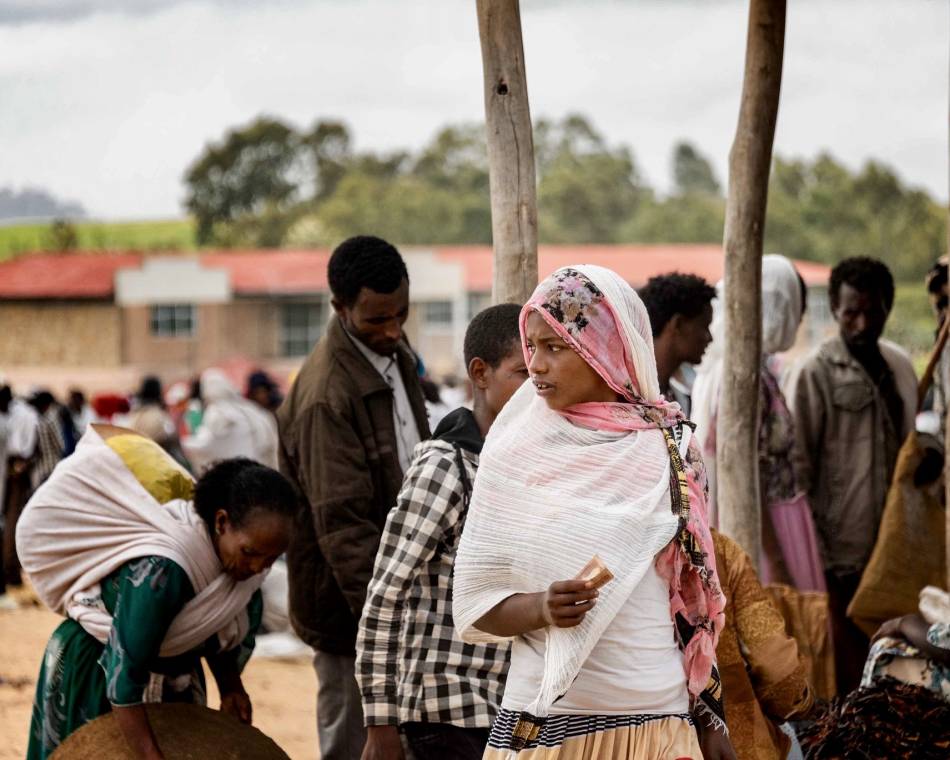GENEVA (AN) — The United Nations' top human rights body approved the creation of an international commission of experts on Friday that will investigate abuses committed during the past year of war in Ethiopia.
The 47-nation U.N. Human Rights Council voted 21 to 15, with 11 countries abstaining, to establish a three-person team of human rights experts during a special session requested by the European Union.
The team, which is to be appointed by the council president, was given a one-year mandate to monitor and report back on the conflict between Ethiopia's government forces and fighters from the Tigray region.
Ethiopia's foreign ministry decried the vote, saying it was "extremely disappointed to have witnessed once again the use of the Human Rights Council by some to advance their politically motivated agenda."
The council called on the team to conduct "a thorough and impartial investigation into allegations of violations and abuses committed in Ethiopia since 3 November 2020 by all parties to the conflict; to establish the facts and circumstances surrounding the alleged violations and abuses, to collect and preserve evidence, to identify those responsible, where possible, and to make such information accessible and usable in support of ongoing and future accountability efforts; to provide guidance on transitional justice, including accountability, reconciliation and healing; and to integrate a gender perspective and a survivor-centred approach throughout its work, among others."
Nada Al-Nashif, the deputy head of the Office of the U.N. High Commissioner for Human Rights, or OHCHR, told the council that more than 400,000 people in Tigray are probably living in famine-like conditions, due to limited aid allowed into the region made worse by the harasssment of aid workers.
Acute food insecurity affects more than 9.4 million people in northern Ethiopia, according to the U.N. Office for the Coordination of Humanitarian Affairs, or OCHA. Within Tigray, 5.2 million people, or about 90% of the population, is estimated to be in need.
The @UN🇺🇳 Human Rights Council adopts by vote a resolution establishing an international commission of experts on #Ethiopia🇪🇹 to conduct an investigation into allegations of human rights violations and abuses by all parties to the conflict.
— UN Human Rights Council (@UN_HRC) December 17, 2021
TEXT ➞https://t.co/ctxSPC4JVO#S33 pic.twitter.com/x0nLdVnKbQ
Credible reports of serious abuses
At least 2 million people across the Tigray, Amhara and Afar regions have been displaced, al-Nashif said, and many of those "are not receiving the assistance they need to stay alive. There are also concerns that internally displaced people might be pressured to return or relate to areas that may be unsafe."
Eritrean refugees in Ethiopia fear retaliation by Eritrean forces operating there, she added, while more than 50,000 Ethiopians fled Tigray for East Sudan in late 2020, jeopardizing Sudan's scarce resources.
The fighting is between government forces under Ethiopian Prime Minister Abiy Ahmed, who was awarded the Nobel Peace Prize in 2019 for defusing tensions with neighboring Eritrea, and those allied with Tigray’s regional administration.
The national and regional governments consider each other to be unlawful; Tigray defied the government by holding an election, while Abiy postponed a scheduled 2020 general elections, citing the COVID-19 pandemic.
Abiy's government created an Ethiopian Human Rights Commission that collaborated with the U.N. human rights office to produce a report earlier this year on the civilian toll from the fighting and abuses committed by all sides.
But the report was hampered by Ethiopia's efforts to limit the investigation, according to human rights experts.
"Meanwhile, the conflict has continued, with ongoing fighting beyond the borders of Tigray. Our office continues to receive credible reports of severe human rights violations and abuses by all parties," al-Nashif said, who estimated between 5,000 to 7,000 people have been detained in Tigray under Ethiopia's new state of emergency. "The humanitarian impact of the conflict is increasingly dramatic."









